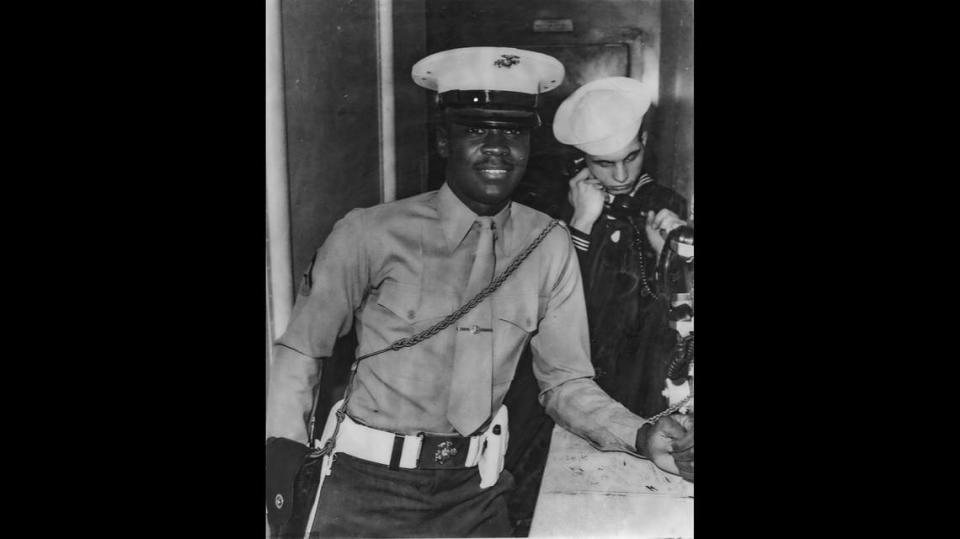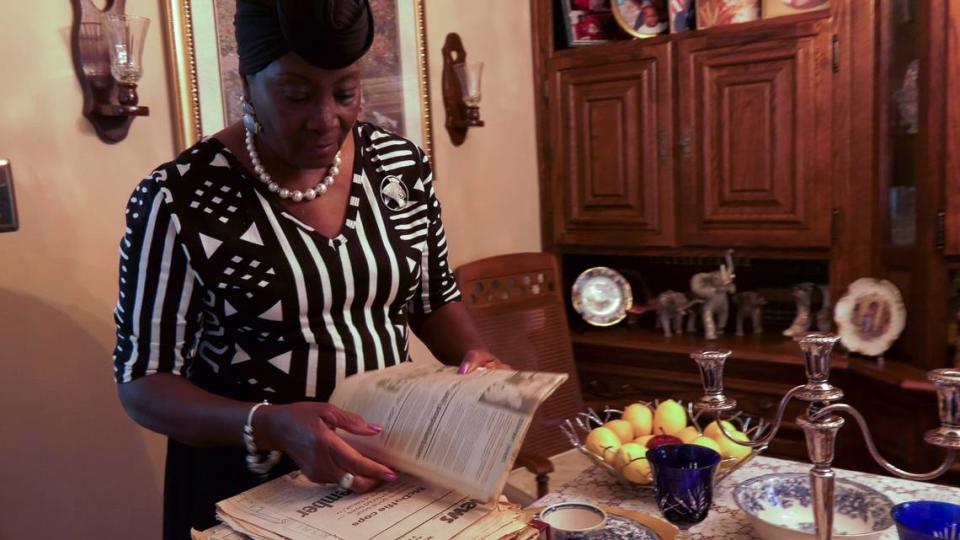Film festival doc ‘When Liberty Burns’ revisits the McDuffie riots and a city on fire
Forty years after Arthur McDuffie’s death, his name evokes one of two reactions today: a blank stare or traumatic memories of the night Miami burned.
The McDuffie riots, as they came to be known, took place in Liberty City in May 1980. By the time the flames died out, 18 people were dead, property damage neared $100 million and the character of the neighborhood was changed forever.
But even longtime Miami residents who remember the mayhem may have foggy memories about the man whose death at the hands of police officers in 1979 sparked the deadliest riot in the city’s history.
The extraordinary documentary “When Liberty Burns” — which makes its world premiere at 3 p.m. Saturday, March 7 and 12:45 p.m. March 14 at the Silverspot Cinema as part of the Miami Film Festival — will do a lot to change that.
Using new interviews, historical and vintage TV news clips and recent footage, director Dudley Alexis has structured “When Liberty Burns” as a deft and engrossing piece of journalism. Leaping back and forth between the past and the present, the movie uses McDuffie’s life to recount the history of Miami’s black communities in Overtown and Liberty City, from the 1920s to the present day.
The sheer accumulation of details, combined with the emotional on-camera interviews, propel the film as it hurtles toward the inevitable, horrible conclusion you dread.
Alexis, whose previous film, “Liberty in a Soup,” screened at the festival in 2017, said he was inspired to make the movie three years ago when his friend Junior Prosper, who drove a taxi cab, was shot and killed by Miami-Dade police after he crashed his car into a lightpole near the I-95 on-ramp at Northwest 119th Street.
“I started researching the relationship between the Miami Police Department and black residents and came across the McDuffie story,” said Alexis, 35. “I started thinking, ‘How come I grew up in Miami and I know nothing about this?’”
After he noticed his older friends all remembered the case vividly, Alexis decided to make a movie about it. But the focus of his film would differ from previous documentaries made about the riots.

Instead of focusing on McDuffie’s brutal death — he died in the hospital after he was bludgeoned in the head by cops with his hands cuffed behind his back — Alexis celebrates the man’s life: his childhood in Georgia; his family’s move to Overtown in the 1950s, when it was a thriving neighborhood; his high-school romance with Frederica, the woman he would eventually marry; his stint as a U.S. Marine; and his relationship with his two kids, both of whom appear in the film.
Forgotten history
“When Liberty Burns” also relies on interviews with historians to place McDuffie’s life into context. We learn about the remnants of the Jim Crow laws that took deep root in Miami-area police departments (in the 1920s and ‘30s, South Florida cops were required to be members of the Ku Klux Klan in good standing). We hear about the first black couple who bought a home in the then-white neighborhood of Liberty City and the burning crosses on their lawn.
We see how the construction of Interstate 95 through the heart of Overtown in the 1960s forever ruined the community that had existed there, displacing tens of thousands of people into relocation buildings in black residential neighborhoods. We revisit outrageous cases — a state trooper who molested a young black girl in his patrol car, a policeman who shot a black man in the head for urinating in public — in which the officers involved were never reprimanded.
By the time “When Liberty Burns” reaches McDuffie’s death, the attempted cover-up by six officers involved and their subsequent exoneration by an all-white jury in Tampa, the movie has you worked up, aghast and seething — a glimmer of the desperation and anger that swept through a community that had run out of patience and recourse, and their rage exploded into violence.
FLASHBACK MIAMI: A look back at the 1980 McDuffie Riots
Alexis spent a year researching the McDuffie case, then began production on the documentary, which includes interviews with many of the now-retired black police officers and lawyers who were on the force in 1980. He waited until he had a completed rough cut before he reached out to McDuffie’s family members, who had to be coaxed into sitting down for on-camera interviews.
“It was really tough for them to open up,” Alexis said. “I had to show them that they could trust me with their story. I wanted to make sure to show them it would be a movie they would appreciate.”

The filmmaker said McDuffie’s relatives have already seen the final cut and given it their emotional approval. Now it’s Miami’s turn to watch the film, which opens with a snippet of a famed speech by Martin Luther King, Jr. — “A riot is the language of the unheard” — then proceeds to illustrate just that.
And although it is impossible to watch “When Liberty Burns” without connecting it to the ongoing #BlackLivesMatter movement, Alexis said the issue transcends police officers and cuts into something much deeper.
“I keep telling people that I’ve never seen the police as the problem,” he said. “The police are just a reflection of something much deeper within American society itself. It’s something that existed here for 400 years, so it will take more than a few generations to get rid of it. But that change has to come from all of us, as Americans, before we see that change in the police.”
IF YOU GO:
‘When Liberty Burns’ screens at 3 p.m. Saturday March 7 and 12:45 p.m. March 14 at the Silverspot Cinema, 300 SE Third St., Miami as part of the 2020 Miami Film Festival. A panel discussion moderated by WLRN’s Nadege Green will follow the March 7 screening. Participants include director Dudley Alexis and John Hopkins University Associate Professor of History Nathan Connolly. Tickets are $16 ($15 for veterans/seniors, $13 for students).

